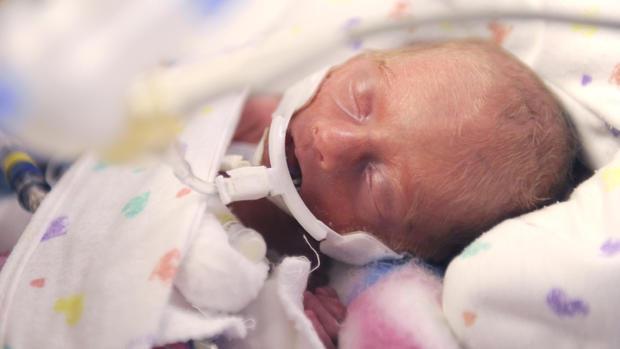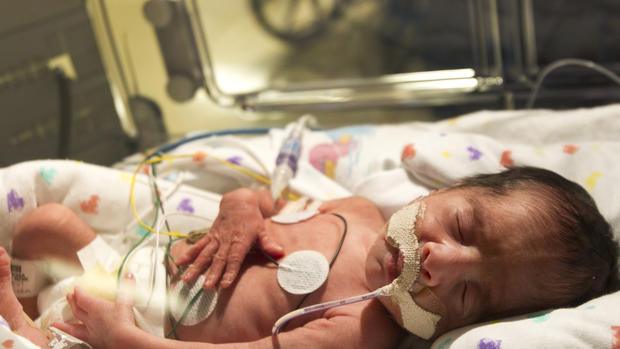Cost of having baby: $21K for single birth, $105k for twins
Having a baby can lead to a lifetime of expenses, ranging from diapers to down payments on that first car. But before that even begins, families have to pay the medical bill from the baby's birth.
A new study finds having one child will cost about $21,000. That price tag skyrockets to $105,000 when having twins -- and more than $400,000 for triplets or more.
"On average, combined all-cause healthcare expenses for mothers with twins or higher-order multiple births were about five and 20 times more expensive, respectively, than singleton delivery," Dr. Dongmu Zhang, a researcher at Global Health Outcomes at Merck & Co., said in a statement.
Researchers wanted to determine the medical expenses associated with multiple deliveries when compared to a single birth, noting that multiple pregnancies were on the rise in the United States and worldwide. Those rates parallel a rise in assisted reproductive technologies, such as in vitro fertilization (IVF), which are linked to a higher likelihood for having multiple births.
About three percent of all U.S. births in 2010 were multiple deliveries, according to federal estimates.
For the study, researchers looked at a health care database that included nearly 438,000 deliveries that took place between Jan. 2005 and Sept. 2010. Ninety-seven percent were single births, which mirrored U.S. rates.
Medical expenses included treatment costs for mom during the 27 weeks before the due date and one month after birth, along with medical expenses for the infant until he or she turned 1.
The authors said expenses were likely due to increased use of a C-section and longer hospital stay for women who deliver multiple births, along with increased admission rates and longer stays in the neonatal intensive care unit (NICU) for multiple births.
They noted that with single births, 60 percent of medical expenses are tied to mom's care whereas with twins or multiple births, 70 percent to 85 percent of costs are for infant care respectively.
Multiple births were also linked with a higher risk for death in mom and the babies, but Zhang noted those overall rates were small.
- Grandmother gives birth to her own twin grandchildren
- More women using donor eggs to get pregnant, study finds
- C-sections may be unnecessary for twin births
The researchers recommend more strategies aimed at minimizing the amount of embryos transferred for IVF procedures, since the risk for multiple pregnancy is due almost entirely to the transfer phase.
The American Society for Reproductive Medicine recommends that women seeking IVF who have a favorable prognosis receive one to two embryo transfers if they are under 35. They suggest two transfers if they are 35 to 37, three if they are between the ages of 38 to 40, and five transfers if they are 41 to 42.
The new study was published Nov. 11 in the American Journal of Obstetrics & Gynecology.


